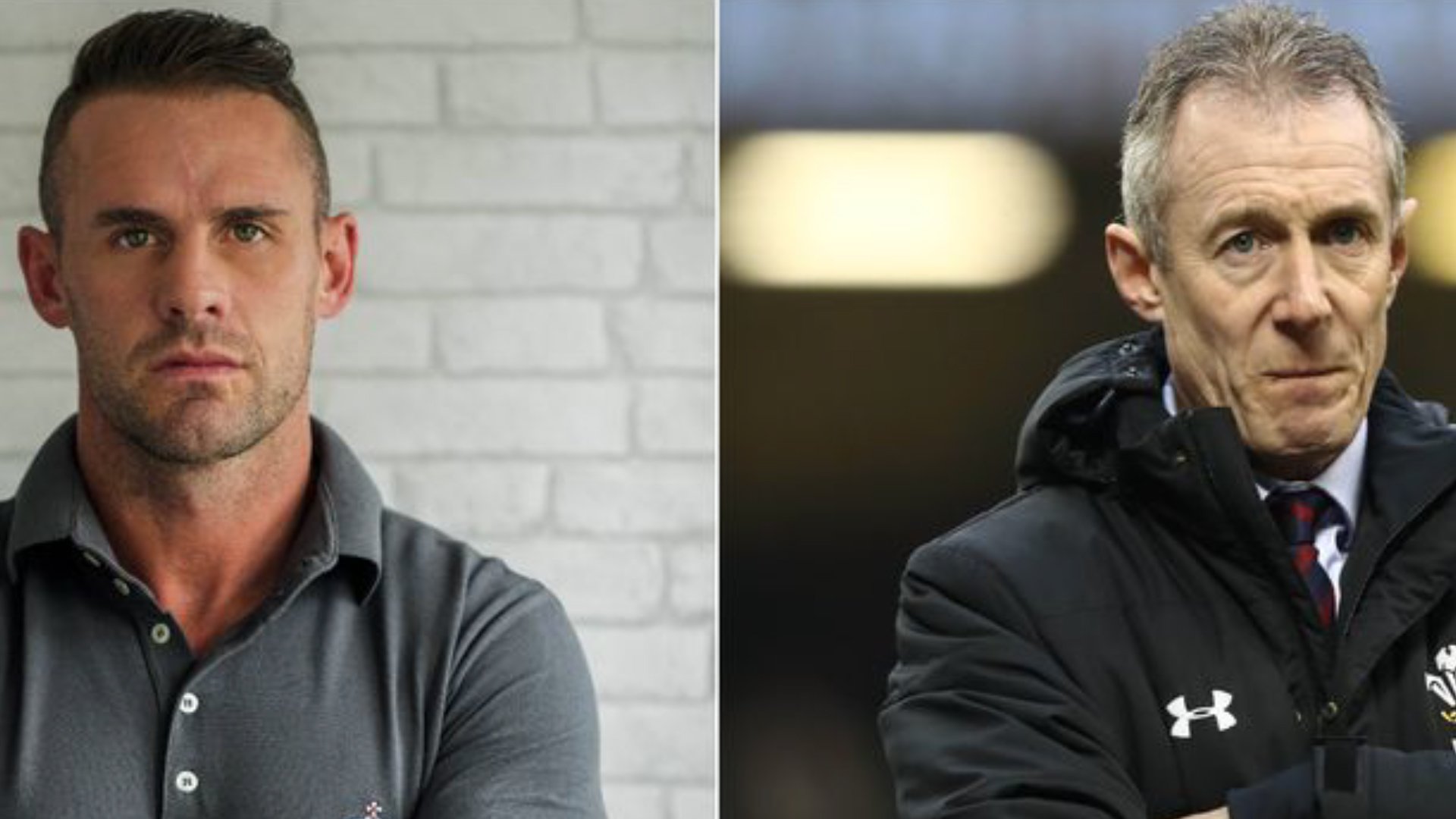Lee Byrne claims Rob Howley tried to humiliate him

Lee Byrne’s autobiography, brilliantly titled the ‘The Byrne Identity’, instantly seems like a must-read for any rugby fan.
In an extract published today, Byrne speaks of his time in the Gatland regime and how it all came to a rather unpleasant end, seemingly in no small part to Rob Howley.
The below extract revolves around a call Byrne received from Howley in November 2013, while having a drink with Alex Lapandry in Clermont.
‘In around 2011, cracks started to appear in our relationship. I’d been affected by a knee injury and had worked my backside off to make the squad for the World Cup.’
‘But when I returned to the training field, I noticed that Howley had a different attitude towards me. I felt he was trying to undermine me, in a subtle yet insidious way.’
‘At the time Leigh Halfpenny – the man who was to take my full-back jersey – was flavour of the month.’
‘Great kick, Halfers. Well done, Halfers!’ Howley would yell during training. Fair enough, except when I nailed the same kick there’d be stony silence. ‘Awesome angle, Halfers!’ he’d cry, only to ignore anything decent I did, whilst loudly criticising my mistakes.’
‘These were not isolated incidents, but a recurring theme. The pattern became glaringly obvious to my team-mates, who’d take the mickey out of me about it.’
‘Byrney!’ they’d shout at me, in imitation of Howley and his signature bawl. It was funny – but I was starting to get the impression the top brass didn’t want me.’
‘Please don’t think I’m whingeing here. I appreciate that coaches have a job to do. And I also understand that players have their sell-by date.’
‘Naturally, I wouldn’t have enjoyed being phased out of the team however he’d done it. But I’d have had more respect for Howley if, as a senior coach, he’d taken me aside and told me what was happening.’
‘That was the way Gatland generally handled things, to be fair. And I didn’t mind being shouted at, either. Shaun Edwards – another Gatland lieutenant – did it the whole time, but I accepted it because his intentions were good.’
‘This was different. Far from being a strategy to help me improve, it seemed to me that Howley’s constant sniping was part of a grinding-down process – step by step and day by day – to get me out of the team. I felt like he was trying to break me down mentally, to make me give in so they could justify dropping me.’
‘The snide remarks had started earlier, when he began passing comment about my social life. As we each resided in Bridgend and knew many of the same people, it would often get back to him if I’d been out. ‘Good night last night, Byrney?’ or ‘Out again on the weekend, Byrney?’ he’d say, in front of the other players.’
‘Again, I thought this was unnecessary. I’d always enjoyed a night out when the time was right. It had never been a problem before, but suddenly it seemed as if my social habits were being used as ammunition against me.’
‘I wasn’t the only player he’d pick on using these tactics, but few would stand up to him. One exception was Phillsy (Mike Phillips), who once told him where to go.’
‘That kind of edge made Mike a great player, but it wasn’t my style. Instead, I just put up with it and simmered.’
‘By the 2012 Six Nations, I was no more first choice in the Wales team. But I was still named in the training squad. Each week I’d return from France for training.’
‘This was no mean feat: on the Sunday night I’d take a flight from Clermont to Amsterdam then onto Cardiff, before making the return journey in midweek, after the match-day squad had been announced.’
‘To make matters worse, the WRU – as part of their cost-cutting measures at the time – were not covering my travel expenses.’
‘The players who’d driven from Swansea or Llanelli weren’t happy about this, so imagine how I felt. The to-ing and fro-ing left me about five or six grand out of pocket (I eventually got a small amount back).’
‘At no point did I consider retiring from Wales duty, but it was a fair way to come – at my own expense – to hold tackle bags.’
‘So this was the background to the phone call I received that November night in 2013. Eased out of the Wales team; subjected, in my view, to bullying treatment; dragged back and forth to Wales with hardly any compensation for my troubles.’
‘For two years, there’d been no communication with the management; but here was a man – a man who I felt had tried to humiliate me in front of my team-mates – ringing up and expecting me to come running because he’d clicked his fingers, to be cannon-fodder for a Friday night game against Tonga.’
‘I excused myself to Alex and left the bar to check my voicemail. Rob’s message was as I’d expected: ‘Byrney, get on the plane. You’re starting against Tonga.’
‘I took a moment to reflect, then called him back. The call diverted to his voicemail.’
‘Forget it, Rob,’ I said. ‘I ain’t coming back.’
‘I never played for Wales again.’






































































